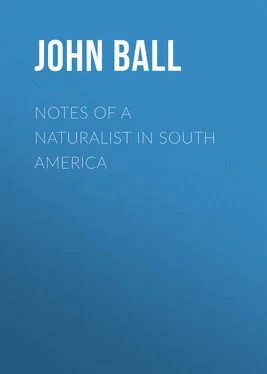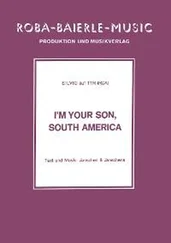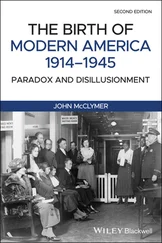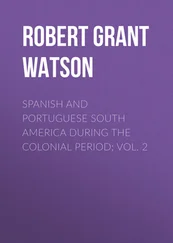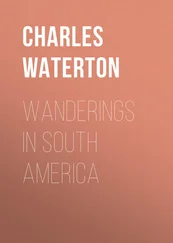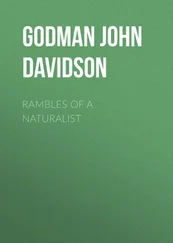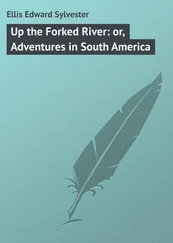John Ball - Notes of a naturalist in South America
Здесь есть возможность читать онлайн «John Ball - Notes of a naturalist in South America» — ознакомительный отрывок электронной книги совершенно бесплатно, а после прочтения отрывка купить полную версию. В некоторых случаях можно слушать аудио, скачать через торрент в формате fb2 и присутствует краткое содержание. Жанр: foreign_antique, foreign_prose, на английском языке. Описание произведения, (предисловие) а так же отзывы посетителей доступны на портале библиотеки ЛибКат.
- Название:Notes of a naturalist in South America
- Автор:
- Жанр:
- Год:неизвестен
- ISBN:нет данных
- Рейтинг книги:4 / 5. Голосов: 1
-
Избранное:Добавить в избранное
- Отзывы:
-
Ваша оценка:
- 80
- 1
- 2
- 3
- 4
- 5
Notes of a naturalist in South America: краткое содержание, описание и аннотация
Предлагаем к чтению аннотацию, описание, краткое содержание или предисловие (зависит от того, что написал сам автор книги «Notes of a naturalist in South America»). Если вы не нашли необходимую информацию о книге — напишите в комментариях, мы постараемся отыскать её.
Notes of a naturalist in South America — читать онлайн ознакомительный отрывок
Ниже представлен текст книги, разбитый по страницам. Система сохранения места последней прочитанной страницы, позволяет с удобством читать онлайн бесплатно книгу «Notes of a naturalist in South America», без необходимости каждый раз заново искать на чём Вы остановились. Поставьте закладку, и сможете в любой момент перейти на страницу, на которой закончили чтение.
Интервал:
Закладка:
Considered merely as engineering works, these lines, which owe their existence to the enterprise of an American contractor and the skill of the engineers who carried out the undertaking, may fairly be counted among the wonders of the world. The Oroya line, the more difficult of the two, unfortunately remained unfinished. Although the loans contracted in Europe by the Peruvian Government more than sufficed to defray the cost of all the industrial undertakings that they were professedly intended to supply, it is scarcely necessary to say that a large portion disappeared through underground channels, leaving legitimate demands unprovided for. The stipulated instalments due to Mr. Meiggs, the great contractor, remained unpaid, and, in the midst of the difficulties in which he was thus involved, his death put a final stoppage to the works. The line had been completed and opened for a distance of about eighty miles from Lima, as far as the village of Chicla, 12,220 feet above the sea. From that time forward Mr. Meiggs devoted his energies to the boring of the tunnel at the summit, probably under the impression that if that were once finished the Peruvian Government could scarcely fail to provide the funds necessary to complete the line on either side.
UNFINISHED ANDEAN RAILWAY.
I had found it impossible to ascertain before leaving England what had been the fate of these magnificent works since the ravages of war had devastated the region through which they are carried. Various quite inconsistent stories had reached me through the passengers from Panama, Guayaquil, and Payta. Traffic, said some, continued on both lines just as before the war; traffic, said others, had been completely stopped by order of the Chilian authorities; others, finally, asserted that the Oroya line had been so damaged by either belligerent as to be rendered permanently useless.
Before I had been many hours on shore, I was able to get authentic information which relieved my mind from further anxiety. The southern line, from Mollendo to Puno, was open; but Arequipa, the chief place on the way, was still in possession of the Peruvians, who occupied it in some force. With permits, to be obtained from the commanding officers on both sides, it might be possible to go and return, supposing no fresh outbreak of hostile movements of the troops on either side. The news as to the Oroya line was even more satisfactory. The whole line was occupied by the Chilian forces, there being a detachment at Chicla, with outposts on the farther side of the pass. The line had been for some time closed to traffic, but had been re-opened a few days before our arrival. With a permit, to be obtained from the chief of the staff in Lima, there would be no difficulty in proceeding to Chicla.
My decision was speedily taken. Under the most favourable circumstances, the time necessary to reach Puno and return to the coast, with the not improbable risk of detention, was more than I could afford. Further than this, as Puno lies on the plateau remote from the mountains, I should see but little of the characteristic flora of the Andes, unless I could reach some place on the eastern shore of the Lake of Titicaca, whence access could be had to the flanks of the Sorata Andes.
Some description of the Lake of Titicaca which I had read as a boy still dwelt in my mind, and the memoirs and conversation of the late Mr. Pentland had long made the peaks of Sorata objects of especial interest to me. There could, however, be no doubt that the faint hope of beholding them which had lingered till then must be renounced, and I was too happy at the prospect of achieving a short visit to the more accessible part of the chain to have leisure for any keen regret.
DON PATRICIO LYNCH.
Having ascertained that the trains to Chicla departed only every second day, returning thence on the alternate days, I arranged to start on the 20th. During the two intermediate days, I had the opportunity of making several agreeable acquaintances. Sir Spencer St. John, the English minister, had lately returned to Europe, and the legation was temporarily under the charge of Mr. J. R. Graham, who had recently acted as chargé d’affaires in Guatemala. Among other kind attentions which I have to acknowledge, Mr. Graham was good enough to introduce me to Don Patricio Lynch, commander-in-chief of the Chilian forces in Peru.
The object of boundless admiration from his own followers, and of still more unmeasured denunciation from his enemies, General Lynch is undoubtedly the most remarkable man who has come to the front during the late unhappy war in South America. Like most of the men who have acquired military renown in that part of the world, he is of Irish extraction, his grandfather having settled in Chili early in the present century. Having served as a young man for a time in the English navy, he was promoted by the Chilian Government, some time after the outbreak of the war, to a naval command. The operations at sea had, up to that time, been on the whole unfavourable to Chili, and the successes which finally changed the aspect of the war by sea were largely ascribed to the energy and ability of Admiral Lynch. Passing from the sea to the land, he so much distinguished himself in various daring encounters with the enemy that he was finally promoted to the chief command of the Chilian forces in Peru, and at this time was virtually dictator, with absolute rule over the whole coast region occupied by the Chilian army.
However open to discussion might be the policy adopted by the Chilians towards the conquered country, there was a general agreement as to one matter of no slight importance. The population of Lima and the surrounding districts is composed of the most varied constituents – native Indian, negro, and the mongrel offspring of the intermixture of these with European blood, to all which of late years has been added a large contingent of Chinese immigrants. It is not surprising that, under inefficient administration, there should have arisen from the dregs of such a population a large class either actually living by crime or ready to resort to outrage as favourable opportunities might arise. On the other hand, the Chilian army, for which there was but a small nucleus of regular troops, had to be largely recruited from among the loose fish of the floating population of South America, and naturally included no small number of bad subjects, ready to make the utmost use of the license of war. For many years past the police of Lima was notoriously inefficient; robberies were frequent, and there were many spots in the neighbourhood of the city where it was considered unsafe to go unarmed even in broad daylight. It was not unreasonably feared that in such conditions the occupation of the city by the Chilians would have results disastrous for the safety of the numerous foreign residents and the peaceful citizens. It was through the energy and capacity of General Lynch that the apprehended reign of disorder was averted. An efficient police was at once established, speedy capital punishment was awarded in every case of serious outrage, and with stern impartiality a short shrift was allotted alike to the Peruvian marauder and the looter wearing Chilian uniform. It was admitted on all hands that the city had never before been so safe, while, at the same time, the ordinary municipal work of cleansing, watering, and lighting the streets and public places had been visibly improved under the stimulus of vigorous administration.
ORDER ESTABLISHED IN LIMA.
My reception by the Chilian general was all that I could desire. He at once expressed his readiness to assist my objects in every way, and carried out his promise by giving me a letter to the officer commanding the detachment at Chicla, with instructions to provide horses and guides and all needful protection for myself and my companion. I failed to detect in General Lynch any of the characteristics, usually so persistent, of men of Irish descent. The stately courtesy and serious expression, reminding one of the bearing of a Castilian gentleman, were not enlivened by the irrepressible touches of liveliness that involuntarily relieve even a careworn Irishman from the pressure of his environment. One particularity in the arrangements at head-quarters struck me as singular; but I afterwards understood that it was merely the transference to Peru of the ordinary habits of Chili. The head-quarters of the general were fixed in the former palace of the Spanish viceroys. A sentry in the street paid no attention as, in company with Mr. Graham, I entered the first court, and it appeared that every one, or, at least, every decently dressed stranger, was free to pass. Through an open door we entered the first of a suite of large rooms, and advanced from one to another without encountering a human being, whether guard or attendant, until in the last room but one, seemingly by accident, a secretary presented himself, who at once ushered us into the cabinet of the general. In the case of any public man in Europe, to say nothing of the chief of an army of occupation constantly assailed by the fiercest denunciations, and left thus easy of access, some fanatic or madman would speedily translate the popular hatred into grim deed.
Читать дальшеИнтервал:
Закладка:
Похожие книги на «Notes of a naturalist in South America»
Представляем Вашему вниманию похожие книги на «Notes of a naturalist in South America» списком для выбора. Мы отобрали схожую по названию и смыслу литературу в надежде предоставить читателям больше вариантов отыскать новые, интересные, ещё непрочитанные произведения.
Обсуждение, отзывы о книге «Notes of a naturalist in South America» и просто собственные мнения читателей. Оставьте ваши комментарии, напишите, что Вы думаете о произведении, его смысле или главных героях. Укажите что конкретно понравилось, а что нет, и почему Вы так считаете.
